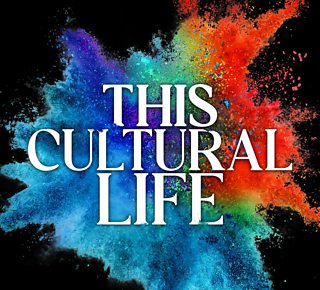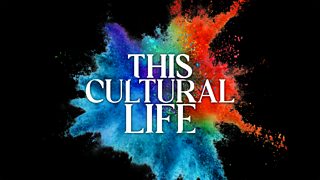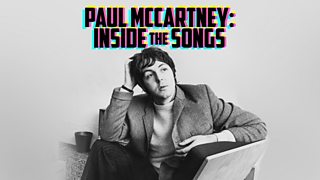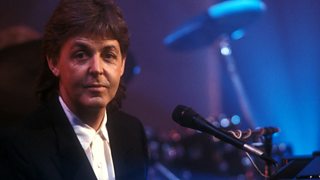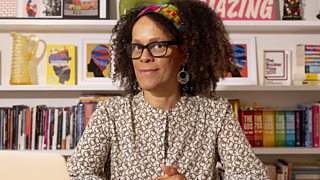Paul McCartney: Nine things we learned from his This Cultural Life interview
As presenter John Wilson puts it, Sir Paul McCartney is quite simply the most successful living songwriter. Both as a solo artist and one quarter of The Beatles, McCartney has influenced countless musicians. On Radio 4's This Cultural Life, he discusses those who have influenced him, as well as explaining why The Beatles’ break-up wasn’t his fault; he opens up about how his mother’s death informed some of his greatest songs; and he reveals what he would have done if he’d never become a musician. Here are nine things we learned.
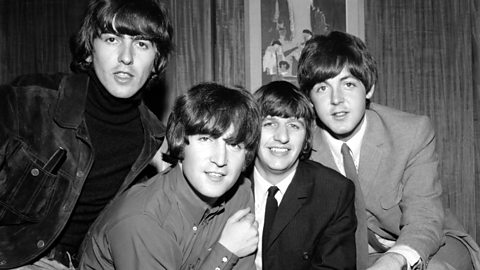
Paul McCartney: "Stop right there. I’m not the person who instigated the split."
Clip from This Cultural Life.
1. Paul wasn’t the one who broke up The Beatles
John walked into the room one day and said, ‘I’m leaving The Beatles.’ Is that not instigating the split?Sir Paul McCartney
The Beatles were the biggest band in the world for most of the 1960s, until their split in 1970. For many years, McCartney was assumed to be the one who ended The Beatles, because he brought in lawyers to talks about the disbanding of the group. When Wilson suggests he ended it, McCartney replies, “Stop right there. I’m not the person who instigated the split… John walked into the room one day and said, ‘I’m leaving The Beatles.’ Is that not instigating the split?” McCartney says he had to bring in lawyers because the other members of the band, even when they knew the group would soon be over, wanted to sign with a new manager, Allen Klein, who McCartney believed was “going to take it all”. He says, “The only way I could fight was in suing the other Beatles, because they were going with Klein. And they thanked me for it, years later. But I didn’t instigate the split. That was our Johnny.”
2. His mum wanted him to be a doctor
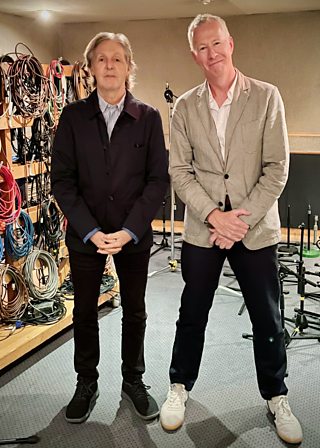
McCartney says that his earliest memories of music come from his family. He recalls relatives gathering around the piano to sing and his mum, Mary, whistling in the kitchen. To McCartney, music meant happiness. “One of my great memories is hearing Mum in the kitchen, whistling,” he says. “I thought ‘It’s great. Mum’s happy.’” McCartney’s mother was a nurse. He says the greatest thing she gave him was an instinct to be kind: “That was her legacy… realising that it’s a good thing to care for people.” It was his mother’s hope that he might follow her into a caring profession. “She was very aspirational,” he says. “She wanted us to do well. Being a nurse, she wanted us to be doctors, me and my brother.”
3. Let It Be came from a dream about his mum
Mary died when McCartney was 14, from complications from breast cancer surgery. They were incredibly close and McCartney says his mum inspired a number of his biggest songs. Let It Be is explicitly about her. “In the 60s, when I was doing too much of everything, like all my friends: drugs, drink, whatever… I went to sleep one night and she came to me in a dream.” He remembers all the details of the dream: “I was obviously looking a bit wrecked and she was concerned. She said to me, ‘Don’t worry, it’s all going to be all right… just let it be.’ I woke up feeling great, having been with my mum, and thought, ‘Wait a minute, let it be? That’s a great thing. Maybe write a song about it.’” He says Yesterday is also, he realises now, about his mum. “It was years later that somebody said, ‘Do you think that’s about your mum?’ I realised it probably was. At the time, I was just thinking [it was about] a girlfriend.’”
4. He likes Chaucer because his stories are filthy
McCartney was set on a path to song-writing at school, even if he didn’t know it. It was there that he found a love of language and writing. “I had a brilliant English literature teacher called Alan Durban,” he says. “He got me to get interested [in writing] by telling me about The Miller’s Tale [by Geoffrey Chaucer]. When I read it, I thought, ‘This is great. It’s really dirty.’ And it gave me a lot of respect for Chaucer and then it got me interested in other bits of literature.”
5. He wanted to direct Hamlet
McCartney’s love of words grew into a love of theatre and in particular Shakespeare. “I did Hamlet and Henry V,” he says, meaning he watched and read them, not performed in them. “At one point, I was thinking I’d love to direct a couple of plays. Hamlet was one. I’d be hopeless!”
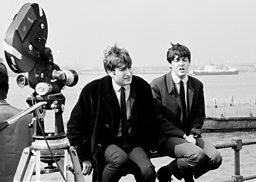
6. He met John Lennon at Woolton village fete
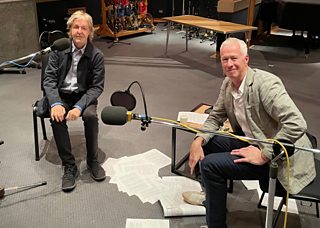
The greatest musical pairing of the 20th century was formed at Woolton village fete. That’s where McCartney met John Lennon, when they were 15. “John lived in Woolton and his friend Ivan was my best friend at school,” he says. Lennon’s band, The Quarrymen, were playing at the fete. “We just chatted. I knew a couple of songs I could do and I knew all the lyrics, which was very impressive. John was doing stuff he didn’t know all the lyrics to and he was just making them up, which I found very impressive. I thought he was pretty cool for that.”
7. He and John wrote a play called Pilchard
McCartney and Lennon wrote some of the best songs in history, but what’s less well-known is they once wrote a play. “This was before The Beatles,” says McCartney. “We were just hanging out, writing our early songs. We started this play.” McCartney completely forgot about it until finding it in his house recently. “I thought that was lost. It’s quite a funny little thing. It’s called Pilchard and it’s about the Messiah. It was in the era of the kitchen sink [drama]. The idea was the mother and the daughter are in the kitchen area… and they’re just talking. The mother says, ‘Where’s Pilchard?’ And the daughter says, ‘He’s upstairs again’… The idea was the whole story would go on and on and it was the Messiah, and that’s why he never came down.” Pilchard has yet to be performed. They only finished four pages.
8. He still imagines talking to Lennon when he’s writing
I’ll go, ‘What would John think of this?’ and sort of imagine playing it to him.Sir Paul McCartney on writing music after The Beatles
It’s 40 years since John Lennon was murdered. McCartney says he still talks to his friend when he’s writing new songs. “Occasionally, I will refer to him and think, ‘Wait a minute, is this any good?’” he says. “Everyone who’s writing always stops and thinks, ‘Oh god, this is terrible’… It’s part of the creative process. So, if I’m at that moment… I’ll go, ‘What would John think of this?’ and sort of imagine playing it to him. And he’ll say ‘Great, carry on’, or ‘It’s rubbish, fix it.’”
9. He thinks he could have become a teacher
Wilson asks McCartney what he might have done if he’d never left Liverpool. He doesn’t opt for doctor, as his mum wanted, but says, “The only thing I was really any good at, or had the qualifications for, was teaching. I could have taught and I think I might not have been too bad at it. For me, it would have been English. Low level English literature… That’s the nearest to what I might have been. A teacher. Of sorts.”
More from Radio 4
-
![]()
This Cultural Life: Paul McCartney
Paul McCartney reveals the key moments and events that shaped his life as a songwriter.
-
![]()
Paul McCartney: Inside the Songs
Paul McCartney talks about his life and song-writing through the prism of 10 key lyrics.
-
![]()
Desert Island Discs: Paul McCartney
Roy Plomley's castaway is Beatle Paul McCartney.
-
![]()
Bernardine Evaristo: Nine things we learned from her This Cultural Life interview
The Booker Prize winner on overcoming bad relationships and her key technique for success.
